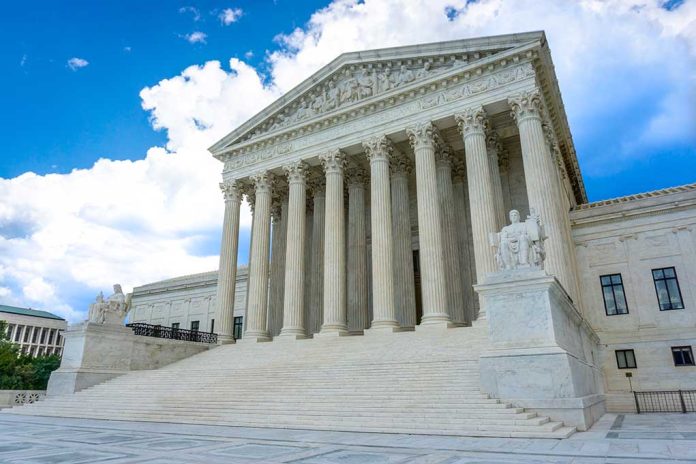
The U.S. Supreme Court’s refusal to hear arguments against Tennessee’s drag performance ban has stirred debates over artistic expression and state regulation, leaving many questions unanswered.
Key Takeaways
- A federal judge deemed Tennessee’s drag performance restriction law unconstitutional.
- The law, signed by Governor Bill Lee, aimed to limit drag performances in spaces accessible to minors.
- Judge Thomas Parker found the law “unconstitutionally vague and substantially overbroad.”
- Over 500 bills regulating LGBTQ conduct have been introduced before the 2024 elections.
- GLAAD sees the ruling as a pivotal moment for LGBTQ rights and speech freedoms.
Supreme Court’s Stance
The Supreme Court’s decision to uphold Tennessee’s drag performance ban has sparked significant discourse regarding the regulation of artistic expression. By declining to hear the appeals, the Court left in place a law that restricts drag performances in public or where children might be present, a move seen as aligning with conservative efforts to limit certain cultural performances.
This development occurs amid increasing legislative actions aimed at curbing LGBTQ-related performances and conduct. Tennessee Governor Bill Lee signed the law as part of a broader Republican initiative, which has seen similar measures proposed across at least 15 states. Critics argue that these regulations disproportionately target artistic communities, stifling creative expression.
Judicial Review and Legal Perspectives
U.S. District Judge Thomas Parker, Trump appointee, had previously declared the law “unconstitutionally vague and substantially overbroad,” asserting it violated First Amendment rights. “Simply put, no majority of the Supreme Court has held that sexually explicit — but not obscene — speech receives less protection than political, artistic, or scientific speech,” Parker stated. His ruling highlights the necessity for laws infringing on speech freedom to be narrowly defined and precise.
Despite judicial disapproval, the Supreme Court’s stance signals a complex battleground for cultural policies and freedoms. The implications of such decisions extend beyond Tennessee, affecting national perceptions of artistic rights and state intervention.
Responses and Future Implications
LGBTQ advocacy groups, including GLAAD, have criticized the Supreme Court’s stance, viewing it as a setback to progress made in the realm of free speech and equality. “This ruling is a turning point and we will not go back,” stated GLAAD, emphasizing the broader cultural repercussions and ongoing fight for rights.
As the country approaches the 2024 elections, Republican lawmakers have introduced over 500 bills targeting LGBTQ conduct, with at least 48 having passed. These legislative trends reflect deeper national divides over issues of freedom, equality, and artistic integrity, posing ongoing challenges to legal frameworks and societal norms.
Sources:
- Federal judge rejects Tennessee drag show ban as unconstitutional
- Supreme Court declines to take up challenge to Tennessee law restricting drag shows
- Supreme Court Leaves Tenn. Drag Ban Intact | Newsmax.com







